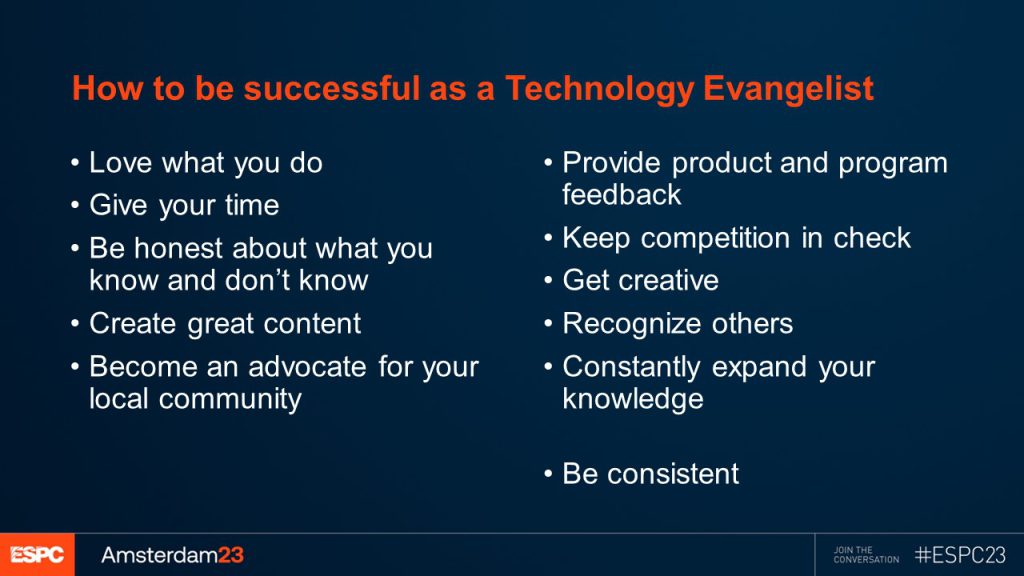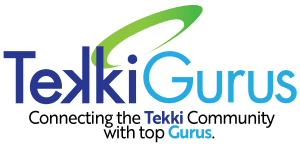Technology Evangelism 101
As part of the #ESPC23 event in Amsterdam this past week, I took to the Inspire Stage in the expo hall to share a business topic that is important to the technology ecosystem — Technology Evangelism 101. I’ve served as a Chief Evangelist for several award-winning ISVs (Independent Software Vendors) and presented or keynote at conferences around the world. But I’ve also built communities from the ground up, and am a repeat entrepreneur. In the digital age, a Technology Evangelist is not just a role but a driving force for a company’s innovation, growth, and community engagement. Evangelists can be internal or external-facing.
So, what exactly does a Technology Evangelist do, and why might your business need one?
 At its core, a Technology Evangelist serves as the human face of your company’s technology or services. They are the articulate heralds of your products or services, deeply involved in not just promoting, but improving and providing invaluable feedback loops from the field to your product teams. Their mission is to pioneer best practices, develop customer data, and advocate for essential product changes.
At its core, a Technology Evangelist serves as the human face of your company’s technology or services. They are the articulate heralds of your products or services, deeply involved in not just promoting, but improving and providing invaluable feedback loops from the field to your product teams. Their mission is to pioneer best practices, develop customer data, and advocate for essential product changes.
Their role is multifaceted, encompassing:
- Product Improvement: Evangelists are out in the field gathering insights to refine and advocate for future versions of your products.
- Community Growth: They are instrumental in building and expanding the community around your technology, providing thought leadership and nurturing partner relationships.
- Partnership Development: With a unique position in the ecosystem, they identify and maintain strategic partnerships, ensuring mutual growth.
- Customer Enablement: Evangelists ensure that customers are not just purchasers but successful users and promoters of your services.
A Technology Evangelist is, above all, an advocate. They are trusted experts who foster visibility and trust within the community, opening doors to new customers and partners. Their thought leadership is demonstrated through content creation tied to a content marketing strategy, not as pitchmen but as neutral, trusted voices that lead customers toward your products.
For instance, working for a Microsoft 365 ISV, an evangelist might write about governance and collaboration, subtly highlighting how their company can address specific needs identified through this content.
Success for an evangelist means being visible at industry events, user groups, and meetings with customers and partners. It’s about offering an honest perspective on your products and the industry at large, providing educational tools, and ensuring successful customer experiences.
To start, identify your internal experts, outline goals, and give them autonomy while learning from external experts. Success as a Technology Evangelist requires passion, generosity with time, honesty about expertise, creative and impactful content creation, community advocacy, constructive product feedback, fair competition, constant knowledge expansion, and consistent engagement.
In essence, a Technology Evangelist is an indispensable asset, aligning your company’s technological capabilities with the heartbeat of the community and market needs, thus propelling your brand towards meaningful growth and presence.
If you’re interested in my help in building out an evangelism strategy for your organization, please contact me.
If you would like to see my slides from ESPC23, click this OneDrive share link.





